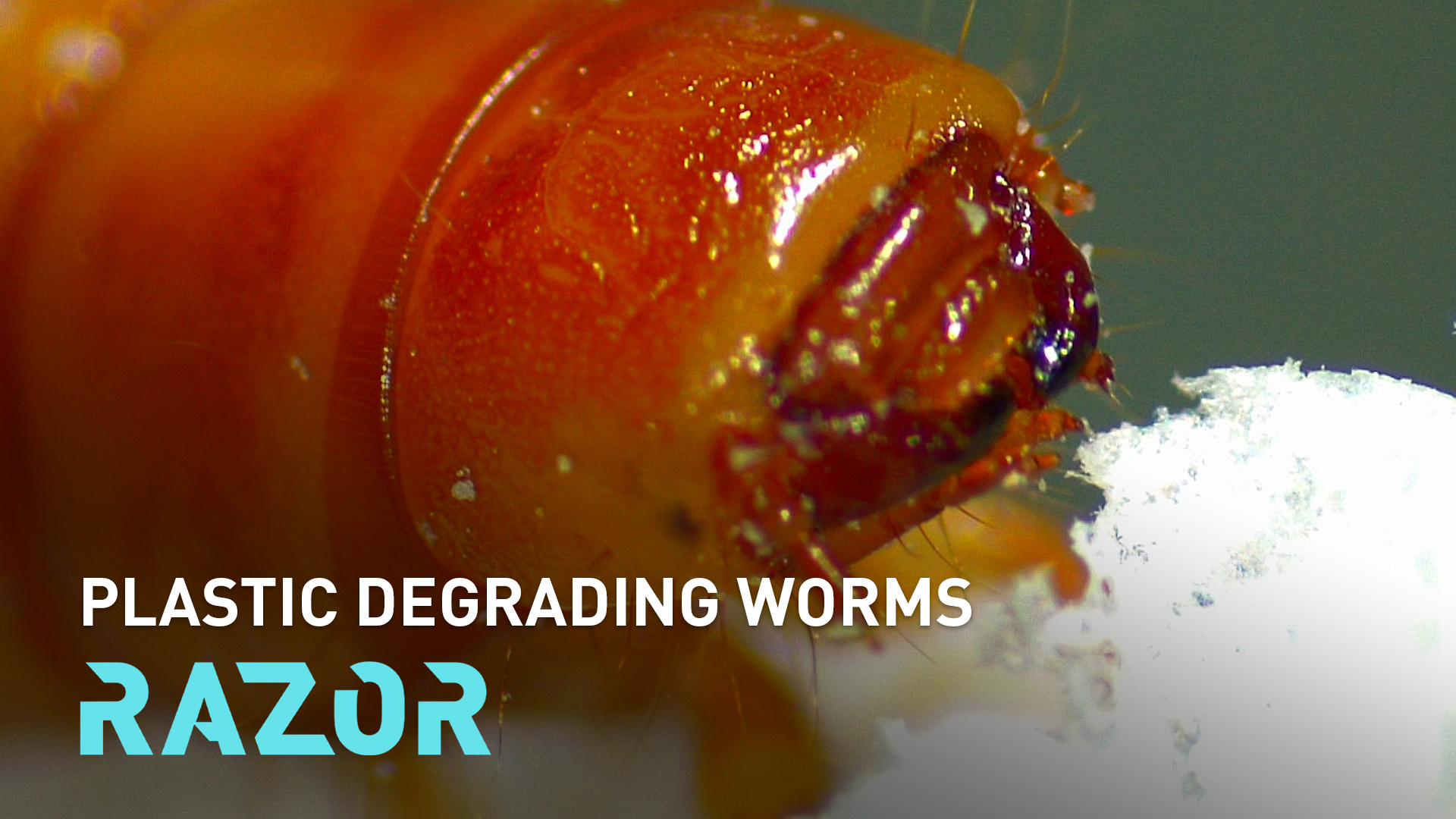13:27

Plastic pollution around the world is growing relentlessly.
A constant flow of plastic production is threatening to overwhelm existing waste management systems and recycling infrastructure, and microplastics have been found on every continent.
As awareness surrounding plastic pollution grows, scientists worldwide are looking for sustainable alternatives to tackle the problem.
Enter the unlikely hero of fighting plastic waste: worms.
In Madrid, Dr Federica Bertocchini – a former amateur beekeeper – made an incredible discovery after cleaning out an infested hive and finding holes in plastic bags that she had used in the process. She and her colleagues isolated unique, plastic-degrading enzymes from the saliva of wax worms, which could revolutionize the way we recycle plastic.
And together with his international colleagues at Beihang University, Dr Weimin Wu of Stanford University has spent years researching how yellow mealworms can break down polystyrene.
RAZOR's Amelia Martyn-Hemphill travelled to Madrid to find out more.
The life cycle of plastics
Plastics don't ever fully decompose – they just get broken down into smaller and smaller particles by natural processes.
This happens because of oxidation: the chemical reaction that takes place when a substance comes into contact with oxygen in the presence of heat or light.
The reaction breaks down the chemical bonds in the hydrocarbon chains through a process called chain scission, resulting in the formation of smaller chain fragments.
But scientists have found that worms could speed up the process drastically.
Polyethylene makes up nearly 30 percent of all plastic production. It's used in single-use bags and other packaging, and makes up the majority of plastic production worldwide.
In nature, it's estimated to take anything from 20 to 500 years for a plastic bag to break down.
But Dr Bertocchini and her colleagues have discovered that enzymes from the saliva of wax worms can degrade polyethylene in just six hours.
And polystyrene – often referred to as styrofoam – is impossible to recycle. Instead, it's dumped in landfills, where it can take more than 500 years to decompose.
However, Dr Wu's research shows that yellow mealworms can digest polystyrene in a matter of hours.
A lifelong effort
For Dr Bertocchini and Dr Wu, finding sustainable solutions to the plastic crisis is a personal mission.
These worms might be nature's answer to tackling plastic pollution, but there's still work to be done. To be effective, these findings need to be reproduced in large scale.
"If we think about plastic waste management to date, we don't have many solutions. Biotechnology could be one of the solutions for plastic waste management – this could be one of these, it could be the first actually. If we manage to arrive at a point in which you can apply liters of the solution of enzymes to piles of plastic, maybe that will be the way to tackle this problem," says Dr Bertocchini.
Dr Wu agrees: "This gives us some ideas that there could be some ways to solve plastic pollution issues. We could develop biotechnology for plastic degradation and the recovery of valuable chemicals from the waste plastics."